The people ate his leader!!!!!
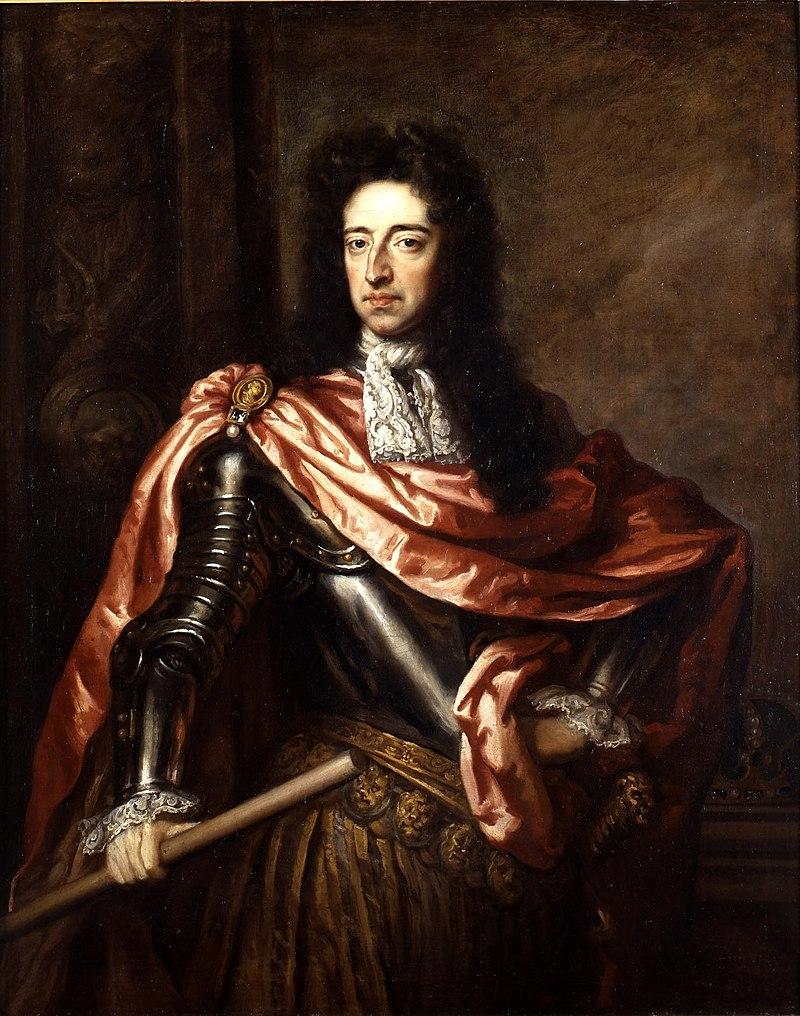
We do not hear of scary stories, we do not read, and we do not watch horror films, but are inspired by real stories and tales immortalized by history and painters, are you ready to live a story whose hero ends up being eaten in the stomachs of his people!!!!!!
Around the year 1653, the Dutchman Johan De Witt became the oldest pensioner in the Netherlands, a position that is currently equivalent to the position of Prime Minister.
De Witt assumed this most important position in the country at the age of twenty-eight, so everyone expected a prosperous political future full of achievements for this ambitious young man, who was re-elected as a retiree three times older.
Johann de Witt is of rich ancestry, with many members of his family working in the political field, most notably his father, who served as Mayor of Dordrecht.
Due to his family's nobility and the position of his father, Johann de Witt received a good education, and gradually acquired from his childhood a skill in mathematics, which allowed him to run the economic affairs of his country later.
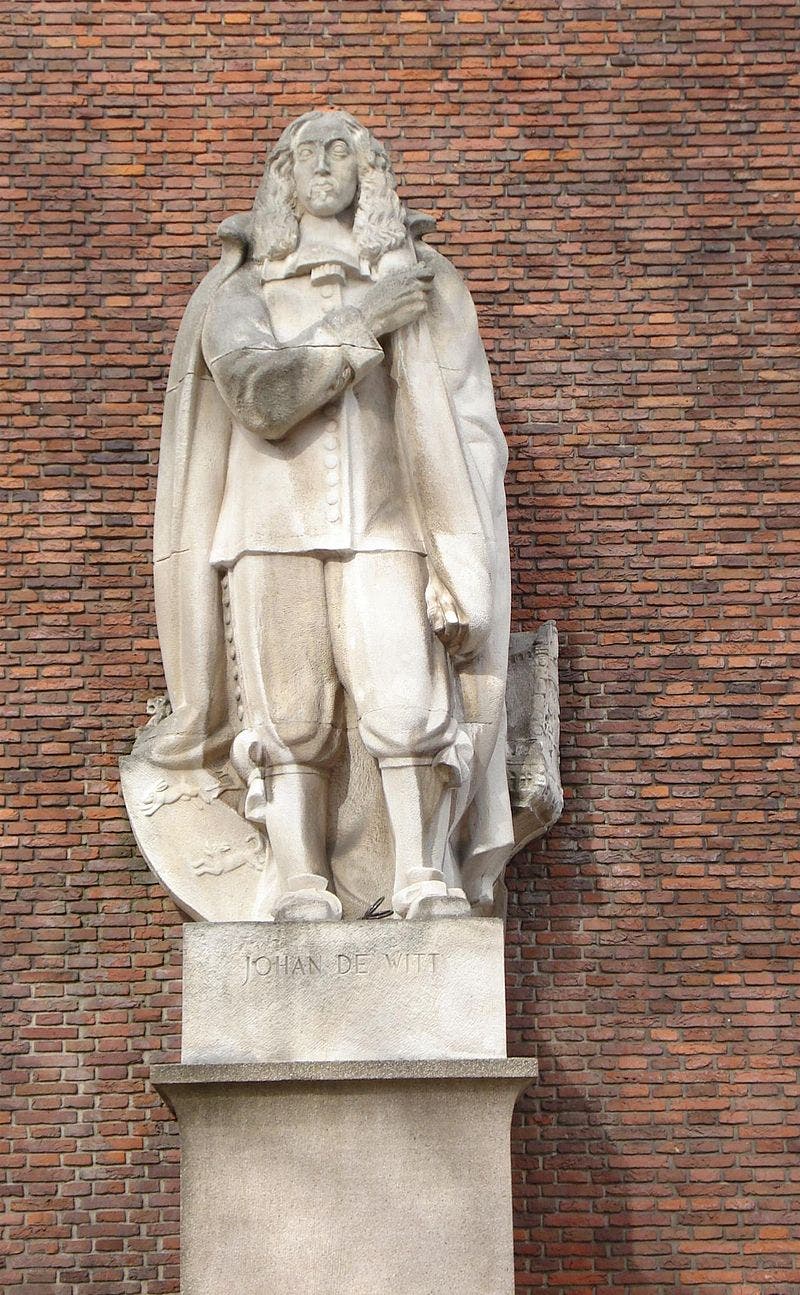 Statue of Johan de Witt in Rotherdam
Statue of Johan de Witt in RotherdamSeasoned ended the Anglo-Dutch War
In addition, de Witt was called a seasoned and intelligent diplomat, for his success in ending the Anglo-Dutch War one year after his appointment in 1653.
This diplomat assumed the position of the senior retiree during a period during which the Netherlands knew its golden age, as it was ranked among the list of great powers, due to its possession of many colonies in both America and Asia, and for the unprecedented commercial movement experienced by the Dutch ports at the time, as many people flocked to the country daily. Commodities such as gold, spices, and silk, via the trade routes of the Dutch East India Company.
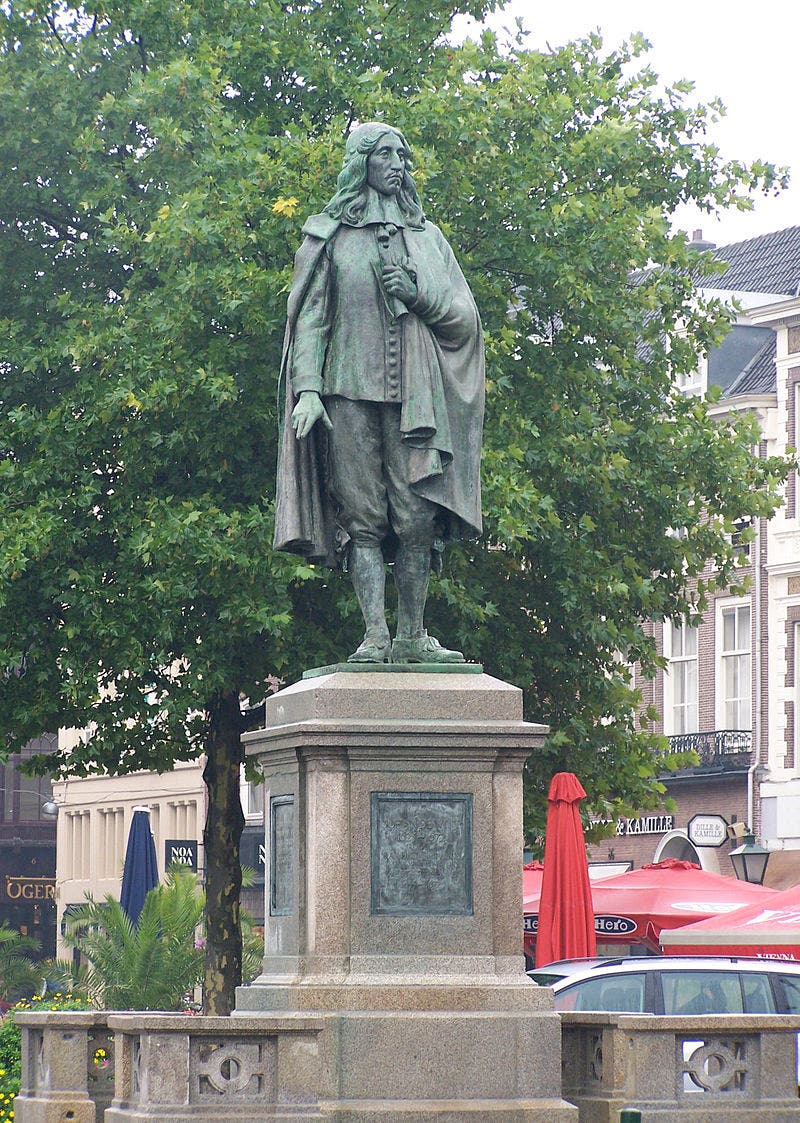 Statue of Johann de Witt in his memory in The Hague
Statue of Johann de Witt in his memory in The HaguePolitical conflict and wars with England
On the other hand, and in conjunction with its flourishing trade, the Netherlands lived in the midst of a political conflict between the republican merchants on the one hand and the followers of the monarchy loyal to the Orange dynasty, also known as Nassau, on the other.
During this period, the de Witt family was known to be one of the most vocal opponents of the royalists.
By the mid-sixties of the seventeenth century, the European continent lived on the impact of continuous disputes between the Dutch and the English, as the two trading powers competed over colonies and trade routes, so the region witnessed the outbreak of war between the two parties in the year 1665, during which Johan de Witt defended his homeland fiercely.
But with the beginning of 1672, the Netherlands experienced its worst years. During that period, a third war broke out, as England, France, Münster and Cologne declared war on the Dutch, which precipitated the fall of Johann de Witt.
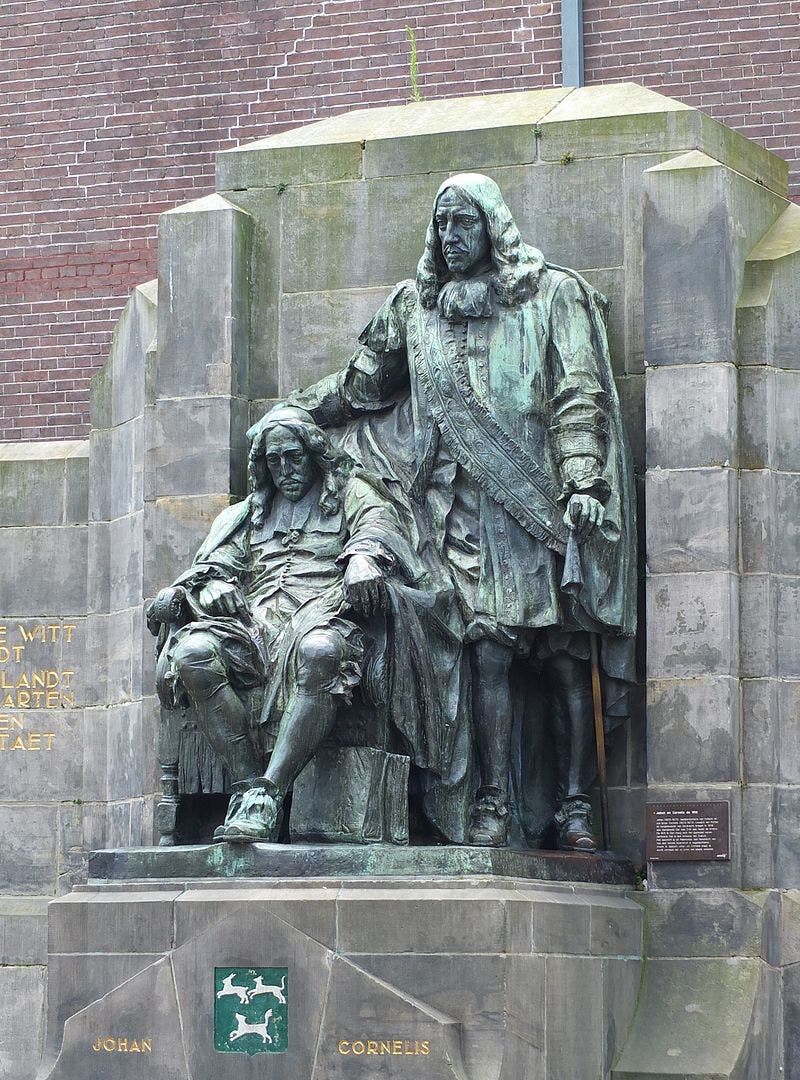 Statue in Dodricht in honor of Johan de Witt and his brother
Statue in Dodricht in honor of Johan de Witt and his brotherDragged and mutilated a corpse
During that year, the Netherlands witnessed a disastrous year bearing the name Rampjaar, as the French forces advanced rapidly into the Dutch lands, and because of this, Johan de Witt's popularity declined, and this coincided with the return of Prince William III (William III), who quickly turned into a national hero in the eyes of many.
In the summer of 1672, Johann de Witt was removed from office, and his brother Cornelis de Witt was forced to cede all his privileges before he was imprisoned for high treason and conspiracy against Prince William III.
On August 1672, XNUMX, Johann de Witt went to visit his brother Cornelis, who was in the Hague prison.
However, a group of angry residents who doubted the truth and purpose of that visit, emphasized the existence of a conspiracy being hatched against the state, and rallied in the center of the city.
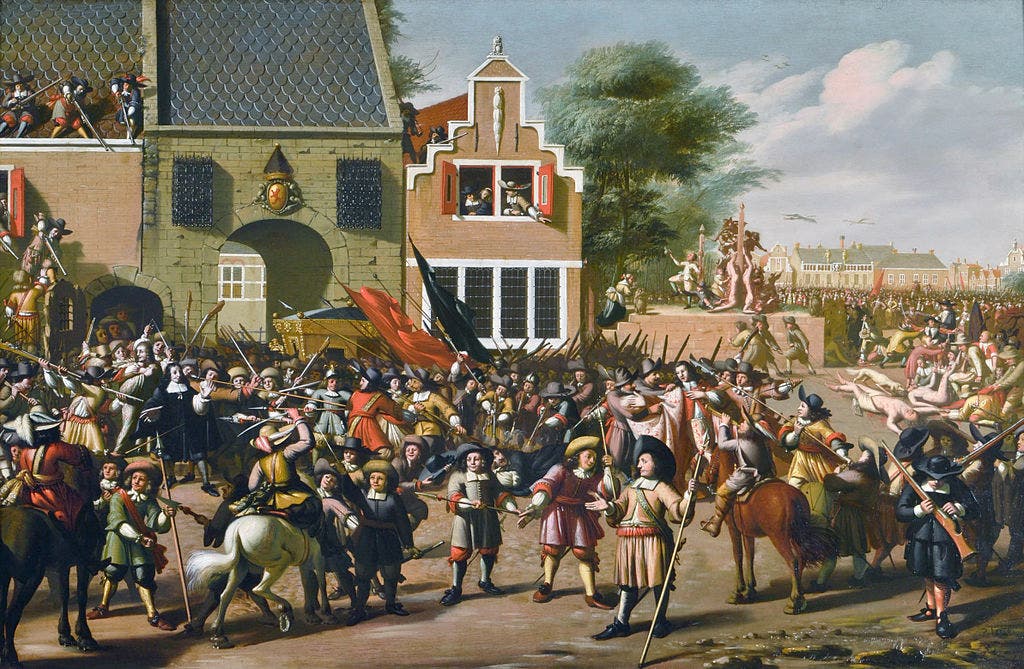 Oil painting depicting the execution of Johann de Witt and his brother
Oil painting depicting the execution of Johann de Witt and his brother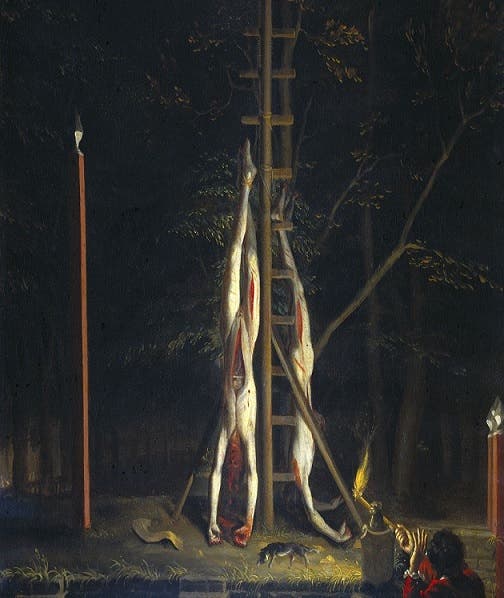 Oil painting dating back to 1672 commemorating the execution of Johann de Witt and his brother and the hanging of their bodies
Oil painting dating back to 1672 commemorating the execution of Johann de Witt and his brother and the hanging of their bodies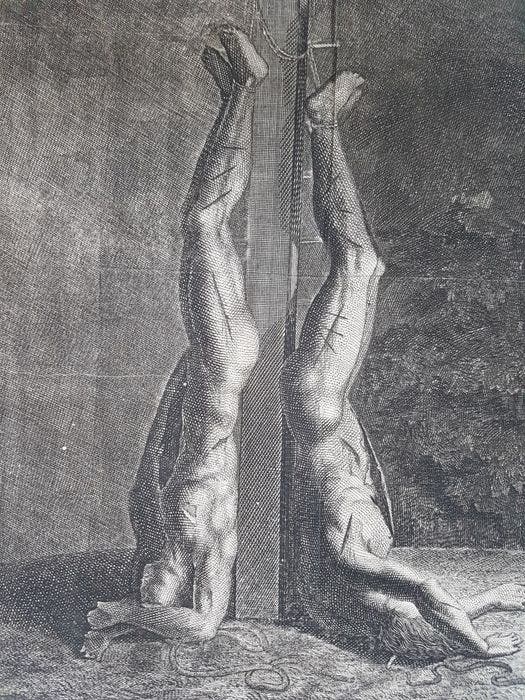 An imaginary drawing of the torn bodies of Johann de Witt and his brother
An imaginary drawing of the torn bodies of Johann de Witt and his brotherAngry mobs attacked the Hague prison before they dragged Johan de Witt and his brother towards a square.
After they were beaten to death, the people of The Hague did not hesitate to execute the former elder pensioner and his brother by firing squad and to hang their bodies on a pole.
The angry crowd did not stop there, but rather proceeded to abuse the body of Johann de Witt, and some of them cut parts of it and ate it!





